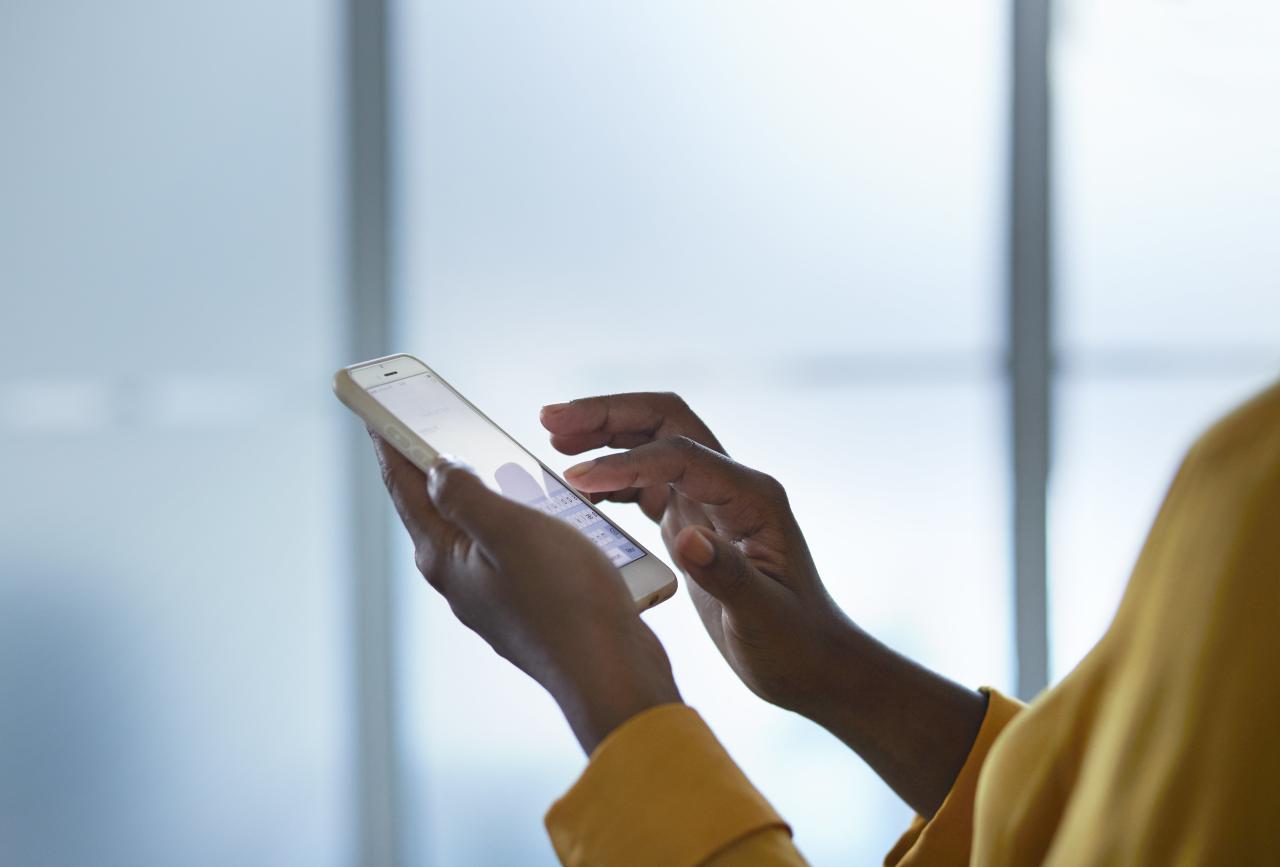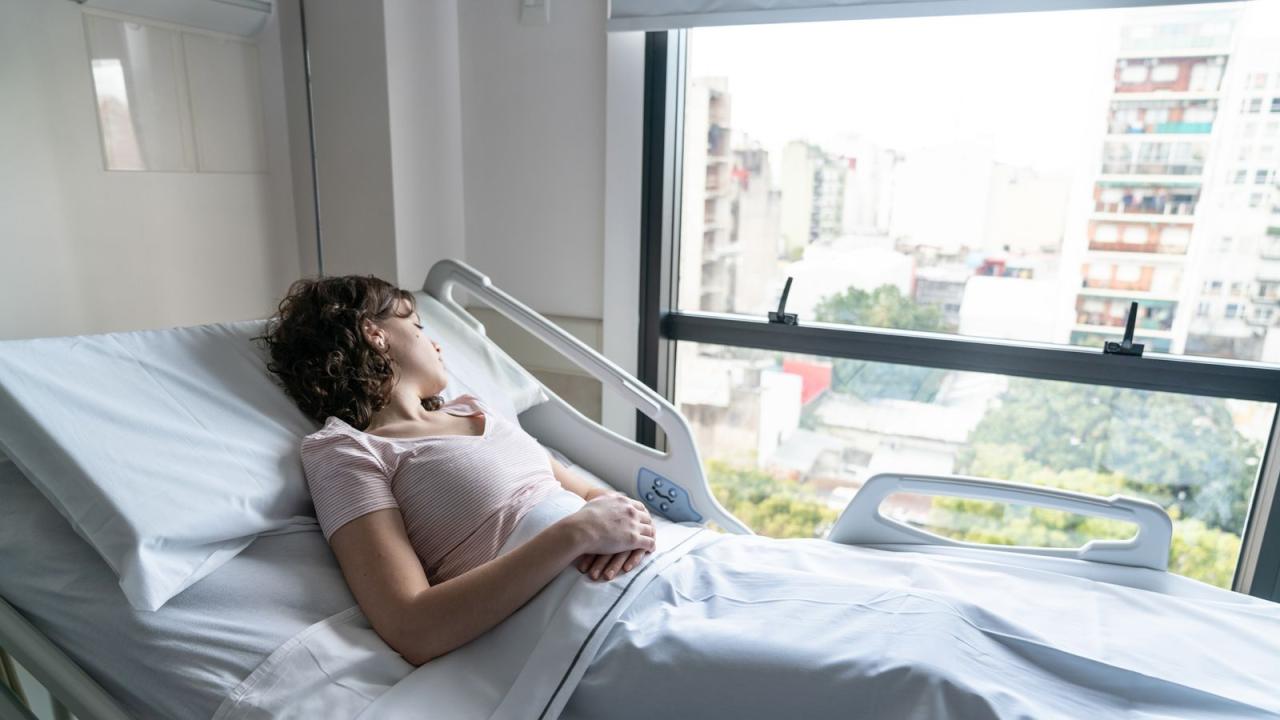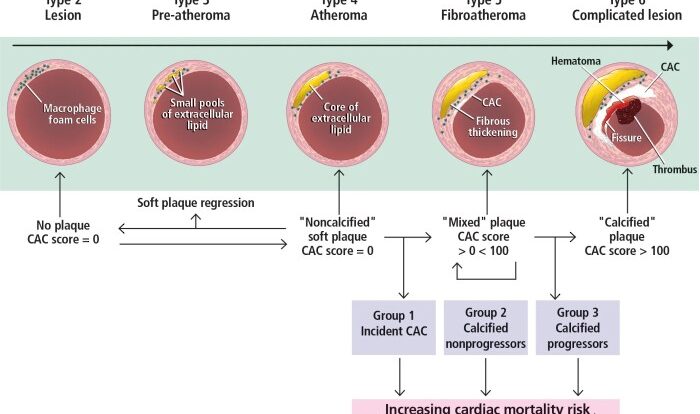Can I have my phone in a mental hospital? This is a question that many people ask when they are admitted to a mental health facility. The answer to this question can vary depending on the specific facility’s policies and the individual patient’s needs.
In this article, we will discuss the different factors that can affect whether or not a patient is allowed to have their phone in a mental hospital. We will also provide some tips for patients who are trying to get their phone privileges back.
Overview of Mental Health Facilities and Policies
Mental health facilities implement varying policies regarding personal electronic devices to maintain a safe and therapeutic environment. These policies can range from complete prohibition to restricted use under specific conditions.
Common Restrictions
- Prohibition of all personal electronic devices, including phones, laptops, and tablets, to minimize distractions and promote engagement in therapy.
- Restrictions on specific device features, such as cameras, social media access, or internet browsing, to prevent inappropriate use or breaches of patient confidentiality.
Common Allowances
- Supervised use of devices for limited periods under staff supervision to facilitate communication with family and friends.
- Allowance of certain devices, such as e-readers or music players, for therapeutic purposes, such as relaxation or cognitive stimulation.
Therapeutic Considerations
The use of mobile phones in mental health settings has significant therapeutic implications. Understanding the potential benefits and challenges is crucial for informed decision-making.
Restricting phone use can provide a structured and controlled environment, minimizing distractions and promoting focused therapy sessions. However, allowing phone use may offer therapeutic benefits by facilitating patient-therapist communication, enhancing self-regulation, and supporting recovery.
Impact on Patient-Therapist Interactions
Mobile phones can facilitate patient-therapist communication outside of scheduled sessions. Patients can ask questions, share updates, and receive support, enhancing continuity of care. However, excessive phone use may disrupt therapeutic boundaries and interfere with in-person interactions.
Impact on Self-Regulation
Phone use can support self-regulation by providing access to apps for mindfulness, mood tracking, and coping mechanisms. However, it may also lead to excessive screen time, reducing time for other therapeutic activities and potentially exacerbating symptoms.
If you’re wondering if you can have your phone in a mental hospital, the answer is likely yes. Most hospitals allow patients to have their phones for communication and entertainment purposes. However, there may be some restrictions on when and where you can use your phone.
For example, you may not be allowed to use your phone during therapy sessions or in certain common areas. If you’re looking for more information on outdoor activities for seniors with limited mobility in Idaho, click here .
Impact on Recovery
Phone use can connect patients with support networks, access recovery resources, and facilitate reintegration into the community. However, it may also expose patients to triggering content or perpetuate negative coping mechanisms.
Privacy and Confidentiality

Maintaining patient privacy and confidentiality in mental health settings is crucial to fostering trust and promoting recovery. It involves safeguarding sensitive information related to a patient’s mental health condition, treatment, and personal circumstances.
While restrictions on personal belongings in mental health facilities are understandable, the question of whether patients can have their phones remains a topic of debate. On the one hand, access to phones can provide comfort and connection. However, it’s important to consider the potential risks, such as the use of social media for self-harm or cyberbullying.
For seniors with limited mobility, engaging in outdoor activities is essential for their well-being. Utah offers numerous options for such activities, including scenic hikes and wheelchair-accessible trails. By exploring Outdoor activities for seniors with limited mobility in Utah , families can ensure their loved ones enjoy the benefits of nature while maintaining their safety.
Allowing phone use in mental health facilities presents both potential risks and benefits regarding patient information protection.
Risks, Can i have my phone in a mental hospital
- Unauthorized access:Patients may inadvertently share sensitive information over the phone, potentially compromising their privacy.
- Breach of confidentiality:Phone conversations can be overheard by unauthorized individuals, violating patient confidentiality.
- Data storage:Phone records may contain sensitive information that could be accessed by third parties.
Benefits
- Enhanced communication:Phone use can facilitate communication between patients and their support systems, including family, friends, and healthcare providers.
- Reduced isolation:Phone access can help reduce feelings of isolation and loneliness, which are common among mental health patients.
- Access to resources:Patients can use their phones to access mental health resources and information, such as support groups, online therapy, and crisis hotlines.
Safety and Security: Can I Have My Phone In A Mental Hospital

The use of phones in mental health facilities raises potential safety and security concerns that must be addressed to ensure the well-being of patients and staff. These concerns include the risk of patients using phones to engage in harmful or illegal activities, such as accessing inappropriate content, cyberbullying, or contacting individuals who may pose a threat to themselves or others.
To mitigate these concerns, mental health facilities should implement measures to monitor and screen phone use. This may involve restricting access to certain websites or apps, limiting the duration of phone calls, and screening incoming and outgoing messages for potential threats.
Additionally, staff should be trained to recognize signs of inappropriate phone use and to intervene if necessary.
Monitoring and Screening
Monitoring and screening are essential components of a comprehensive approach to managing the safety and security risks associated with phone use in mental health facilities. These measures help to identify and mitigate potential threats, while also ensuring that patients have access to the communication tools they need.
- Restricting Access to Certain Websites or Apps:Mental health facilities can implement software or hardware solutions to block access to websites or apps that may pose a risk to patients, such as those containing violent or sexually explicit content.
- Limiting the Duration of Phone Calls:Limiting the duration of phone calls can help to prevent patients from engaging in extended conversations that may be harmful or disruptive. This can also help to ensure that all patients have fair and equitable access to phone privileges.
- Screening Incoming and Outgoing Messages:Screening incoming and outgoing messages can help to identify potential threats, such as messages containing threats of violence or self-harm. This can help to prevent harmful incidents and ensure the safety of patients and staff.
Ethical Considerations
The decision of whether or not to allow phone use in mental health settings involves complex ethical considerations that balance the patient’s right to privacy, autonomy, and access to communication with the potential risks and benefits to the patient and others.
Patient’s Rights
Patients in mental health settings have the right to privacy, autonomy, and access to communication. This includes the right to communicate with family, friends, and healthcare professionals. Phone use can facilitate these communications and support the patient’s recovery process.
Potential Risks and Benefits
While phone use can have therapeutic benefits, it also poses potential risks. These include:
- Privacy concerns:Phone use can compromise patient privacy if conversations are overheard or recorded.
- Distraction:Phone use can distract patients from therapy sessions or other treatment activities.
- Cyberbullying or harassment:Patients may be vulnerable to cyberbullying or harassment through phone use.
- Safety concerns:Phone use can be used to plan escapes or engage in other unsafe activities.
The potential benefits of phone use include:
- Improved communication:Phone use can facilitate communication with family, friends, and healthcare professionals, which can support the patient’s recovery process.
- Access to information:Patients can use phones to access information about their condition, treatment options, and support groups.
- Reduced isolation:Phone use can help patients feel less isolated and more connected to the outside world.
Case Studies and Best Practices
To provide practical insights into effective phone use policies in mental health facilities, we present case studies and best practices that have proven successful in managing this aspect of patient care.
One notable example is the implementation of a tiered system at the Willow Creek Behavioral Health Center. This system categorizes patients based on their stability and progress, granting varying levels of phone access. Patients with higher stability enjoy more unrestricted phone use, while those requiring closer monitoring have limited access.
While it’s understandable to have concerns about phone usage in a mental health setting, it’s equally important for seniors to engage in outdoor activities that promote well-being. Outdoor activities for seniors with limited mobility in Arizona offer a range of accessible options, from nature trails to adaptive sports, fostering physical and mental health.
Engaging in such activities can complement the therapeutic process in mental hospitals, promoting a holistic approach to recovery.
Guidelines and Protocols
Effective phone use policies in mental health settings often incorporate clear guidelines and protocols. These may include:
- Designated phone zones to minimize distractions and ensure patient safety.
- Time limits and monitoring to prevent excessive phone usage and potential risks.
- Supervision during phone calls for patients with safety concerns or who may require support.
- Training for staff on how to handle phone-related incidents or emergencies.
Future Directions and Recommendations
To enhance patient care and recovery, future research and policy development should focus on optimizing phone use in mental health settings.
This can involve exploring the following:
Research Directions
- Conducting longitudinal studies to examine the long-term effects of phone use on mental health outcomes.
- Investigating the impact of different phone-based interventions on specific mental health conditions.
- Developing guidelines for clinicians on how to integrate phone use into therapeutic practices.
Policy Recommendations
- Establishing clear policies regarding phone use in mental health facilities, balancing patient needs with safety and security concerns.
- Providing training for staff on how to manage phone use effectively and ethically.
- Advocating for increased access to technology and digital health resources for patients in mental health settings.
Concluding Remarks
Ultimately, the decision of whether or not to allow a patient to have their phone in a mental hospital is a complex one. There are many factors to consider, including the patient’s safety, privacy, and treatment needs.
If you are a patient who is struggling to get your phone privileges back, there are a few things you can do. First, talk to your doctor or therapist about your concerns. They can help you to understand the reasons why your phone privileges were taken away and what you can do to get them back.
FAQ Section
Can I have my phone in a mental hospital?
The answer to this question can vary depending on the specific facility’s policies and the individual patient’s needs.
What are the benefits of having a phone in a mental hospital?
Having a phone in a mental hospital can provide patients with a sense of connection to the outside world, help them to stay organized, and provide them with a way to access information and entertainment.
What are the risks of having a phone in a mental hospital?
There are some potential risks associated with having a phone in a mental hospital, such as the risk of patients using their phones to access inappropriate content, or to communicate with people who may be harmful to them.





